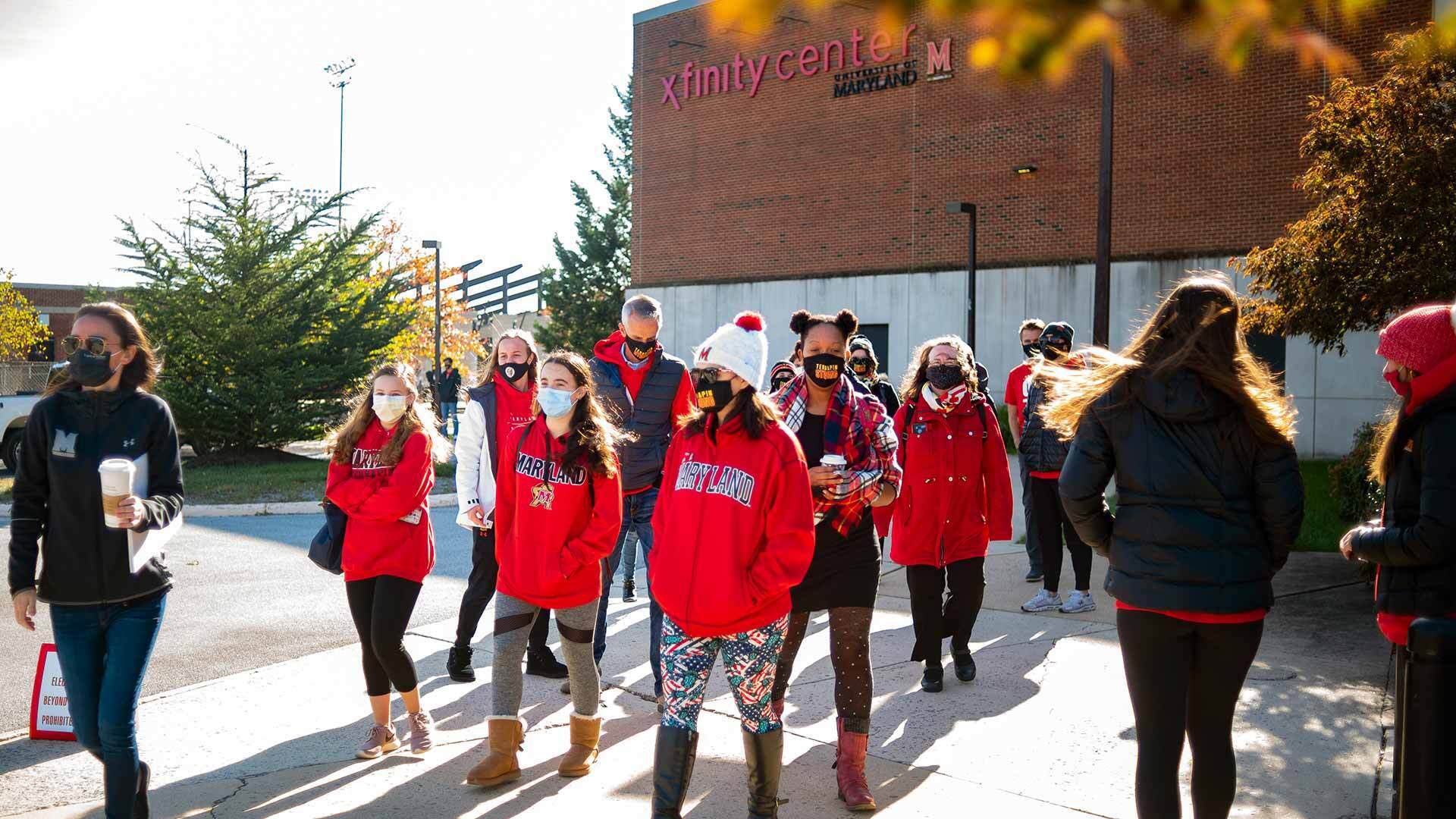- December 17, 2021
- By Liam Farrell
University of Maryland students voted at a higher rate than their peers across the country during the 2020 presidential election, but the nationwide turmoil since then left many also fearing for the stability of American democracy.
Those are the conclusions of two surveys: the National Study of Learning, Voting and Engagement from Tufts University, and a poll of UMD students from the Campus Assessment Working Group, which is part of the Office of Institutional Research, Planning and Assessment.
According to the broader study, which surveyed 3,600 institutions across the country to measure student civic engagement, 71.3% of eligible undergraduate and graduate UMD students voted in the 2020 election, compared to the 66% national average. This represented a significant increase from the 44.5% of UMD students who voted in the 2018 midterm election and 60.7% who voted in the 2016 presidential election.
Ali Barlow, staff co-chair of the TerpsVote Coalition of students, staff and faculty who work to provide on-campus voting education and resources, said multiple factors encouraged that participation, including the high-profile nature of the presidential contest between Donald Trump and Joe Biden, the campus’ proximity to Washington, D.C., and UMD’s robust programs in government, public policy and journalism.
“Not only did students want to be part of the process, many of them saw the relevance of their schoolwork and career path,” she said.
The campus survey released this month, however, shows some worries behind those voting numbers. Administered online from March 22-April 9 to juniors and seniors enrolled in professional writing courses, the poll of 884 UMD students showed less than a quarter agreed or strongly agreed that democracy in the U.S. is stable, with only 14% of African American and 10% of Hispanic respondents agreeing or strongly agreeing.
In addition—perhaps not surprisingly following the ongoing legal battles over the state vote counts and the insurrection at the U.S. Capitol on Jan. 6—3% strongly disagreed, 7% disagreed and 26% were neutral on whether the 2020 election results “legitimately reflect the will of the U.S. voters.”
“That’s something that I think everyone in society, and particularly on college campuses, has to be concerned about and try to understand,” said Michael Hanmer, government and politics professor and research director for UMD’s Center for Democracy and Civic Engagement. “It’s really remarkable when you see such little confidence going forward on a very basic question.”
And while 80% of respondents plan to vote in the 2022 midterms, only 34% of African Americans said the U.S. voting system works well, significantly trailing all other racial and ethnic groups.
“Going forward, we have our work cut out for us in trying to figure out how to bring people together on basic facts and basic values about how we run elections and choose leaders and govern,” Hanmer said. “I don’t think it’s going to be easy.”
Topics
Research